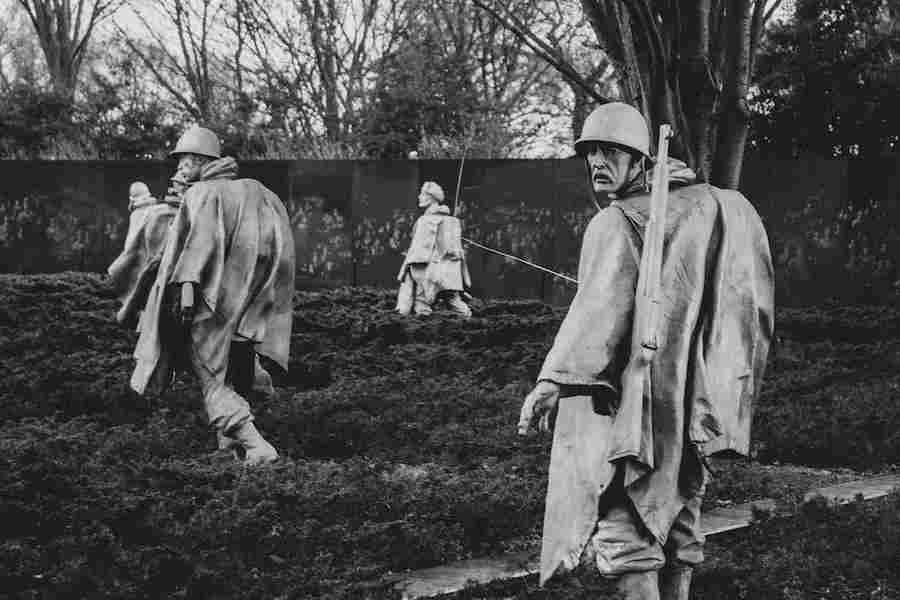Search
About Us
Follow
Signup to Newsletter
Get our regular posts notification, just subscribe our newsletter and keep reading.

How Many People Died In The Crusades? The Prize Of War

A series of religious conflicts occurred in the 11th, 12th, and 13th centuries. The battle was between the two dominant religions, the Christians and Muslims. And that battle was called the Crusades.
The Crusades were the most prominent and fiercest conflicts between both religions. The aim was to gain complete control over places considered sacred.
The Crusades claimed millions of lives and properties. Territories were also lost and gained. However, the exact figure of human lives lost in this battle has been a subject of debate which we seek to put to rest in this post.
Here’s what you need to know about the Crusades, the number of deaths recorded, and more!
What Are The Crusades?
The Crusades are a series of religious wars or battles we hope the world never experiences again. They occurred many centuries ago.
Crusades refer to a religious battle spearheaded by the Christians to reclaim and control sites they consider holy. The Muslims also didn’t fold their arms and watch the Christians take back these lands. Of course, they fought back.
Eight Crusade expeditions took place between 1095 and 1291. And they vary in strength, size, and degree of success.
The Crusades, regarded as a highly violent, costly, and ruthless conflict, enhanced European Christians’ reputation. It made them a key player in the fight for land in the Middle East.
How Many People Died In The Crusade?
The Crusades were one of the most violent and dangerous conflicts in history. The Catholic Church sanctioned the Crusades to expand Christendom and capture Jerusalem, including other Holy Lands.
Millions of lives were lost in these extreme conflicts. Properties and territories were also lost. But the most significant is the number of people that died.
There is no specific record on the number of deaths recorded. However, there’s a rough estimate that around 2 to 6 million people died.
Children, men, and women fought in these crusades. These include people who longed for wealth, power, money, and recognition.
Were The Crusades Successful?
Most modern-day historians will call the Crusades a complete failure, citing the recapturing of most previously captured lands. But if you had lived in Jerusalem for the 200 years that these territories remained under Christian control, you won’t have cause to say the Crusades were unsuccessful.
Taking control of territory for 200 years is no small feat. The Crusaders freed the holy land from the occupiers (Muslims) at the time.
What Was The Goal Of The First Crusade?
Rating all the Crusades via the goals they sought to accomplish is the easiest way to determine which was successful and which wasn’t.
The First Crusade was a huge success. The goal was to re-establish Christian control over the Holy Land, Jerusalem. So, the Crusaders achieved their aim of freeing the Holy Lands under Muslim control, returning them to the Christians.
However, the subsequent Crusades were partly successful. But some historians believe they weren’t, given the success achieved in the first Crusade.
The Misconception About The Crusades
There are a few misunderstandings people have about the Crusades. Many historians and people of both religions have given their stands on what they felt the Crusades represented and stood for.
The Crusades took place several centuries ago. So those that witnessed the conflicts are long gone.
Furthermore, misunderstanding is bound to occur when people who weren’t present at events read different meanings into those events. For the Crusades, here are the misconceptions most people have.
1: Christian Crusaders were violent:
The attack is the best form of defense in any conflict of great magnitude as the Crusades. You either kill or someone will strike you. It’s as simple as that.
So saying the Christian Crusaders were more violent is a biased judgment. Many Christians were killed, and so were Muslims. The conflict claimed millions of lives.
The claims that Christians were violent in the Crusades are complete misunderstandings that have no place in the conflict’s history. Both parties were violent and they sort to eliminate each other to gain dominance.
By the way, you don’t act nice in a conflict, how much more a conflict where two dominant religions are fighting for territorial control.
2: Conversion was a major goal for the Christians:
Another misunderstanding people have about the Crusades is that conversion was the goal of the Crusaders. In other words, the Christian Crusaders’ interest wasn’t only territorial control. They claim they wanted to convert as Muslims too.
Again, this accusation, or rather, misunderstanding, is baseless. For the record, conversion was never a goal for the Christian Crusaders. Even the religious leaders that organized the Crusades never had it in mind to convert the Muslims.
3: Religion played a major role:
Another misconception about the Crusades is that religion gave rise to the conflict. Unfortunately, this is partly true.
It’s easy to blame religion as the primary cause of the Crusades since two religions are involved. But let’s not forget that other pressing issues inspired the Christian Crusaders to take up arms. Here are the issues that inspired the Christian Knight to act.
- The Byzantine Emperor’s plea for assistance:
For instance, there was the collapse of the Byzantine Empire, which fell due to religious controversies and political crises. The rise of the Islamic Caliphate in the Near East contributed to the weakening and fall of this once-great empire.
The Christian community heed to the Byzantine emperor’s call for assistance. They didn’t want to lose another territory to the invaders.
- The Knights’ ambition:
Another reason the Crusades gained moments was the knights’ ambition and religious zeal. Many fought with the mindset that they were fighting for the church and a holy cause. Some knights had a clear ambition of making money and met their aims.
So, several factors motivated the knights to join the Crusades. And personal ambition and religion dominated the list.
- Pope Urban II’s wish:
Many Historians believe Pope Urban II’s preaching was the icing on the cake. They believe it spurred the religious conflict.
The Pope desired to reclaim the Holy Land and reunite the church. He motivated the Christians to march and reclaim those territories. Thus, the first Crusade was successful.
The Pope appealed to the Christian knights, and they responded positively.
- Threats to Constantinople
The Seljuk Turk’s conquest of the Holy Lands and constant threats to Constantinople is another factor that gave rise to the Crusades.
4: The Crusades were unprovoked:
Some historians claim the Crusades were unprovoked, which is an apparent misconception. But they quickly forgot to mention how aggressive the Islamic empires were in that era.
A profound explanation of the Islamic empire of that age would be imperialistic and expansionist. The Islamists conquered several Christian lands, such as Syria, North Africa, Anatolia, Egypt, and Spain.
The Islamic empires also invaded France, attacked Rome, and eyed Greece. They could have even conquered more territories if it were not for the Crusades. The Crusades reduced their pace and capacity to reclaim more territories.
Conclusion
How many people died in the Crusades? There’s an estimate that around 2 to 6 million people died. Properties were lost, and territories were gained.
Pope Urban II’s message is said to have spurred the Crusades. He made a plea to the Christian Knights to reclaim Holy Lands and they responded positively.
The Pope had a strong desire to reclaim the Holy Land and unite the church. And the first Crusade was a success. However, historians believe the subsequent Crusades were less successful than the first.
Share Article
Susan Tapia is an ambitious, savvy news writer with a vibrant personality and an eye for detail. She is highly experienced in crafting compelling stories and dedicated to seeking out the truth. With her inquisitive nature, she delves deep into every subject she touches, uncovering unexpected facts that help her engage her readers. Susan has an unbridled passion for writing, and she strives to inspire others through her work. She confidently shares her thought-provoking ideas with enthusiasm and candor, making sure the world can see the truth no matter how uncomfortable it may be. Simply put, Susan Tapia is a trailblazer in the journalism industry who never fails to deliver her readers riveting stories they won't soon forget.



























